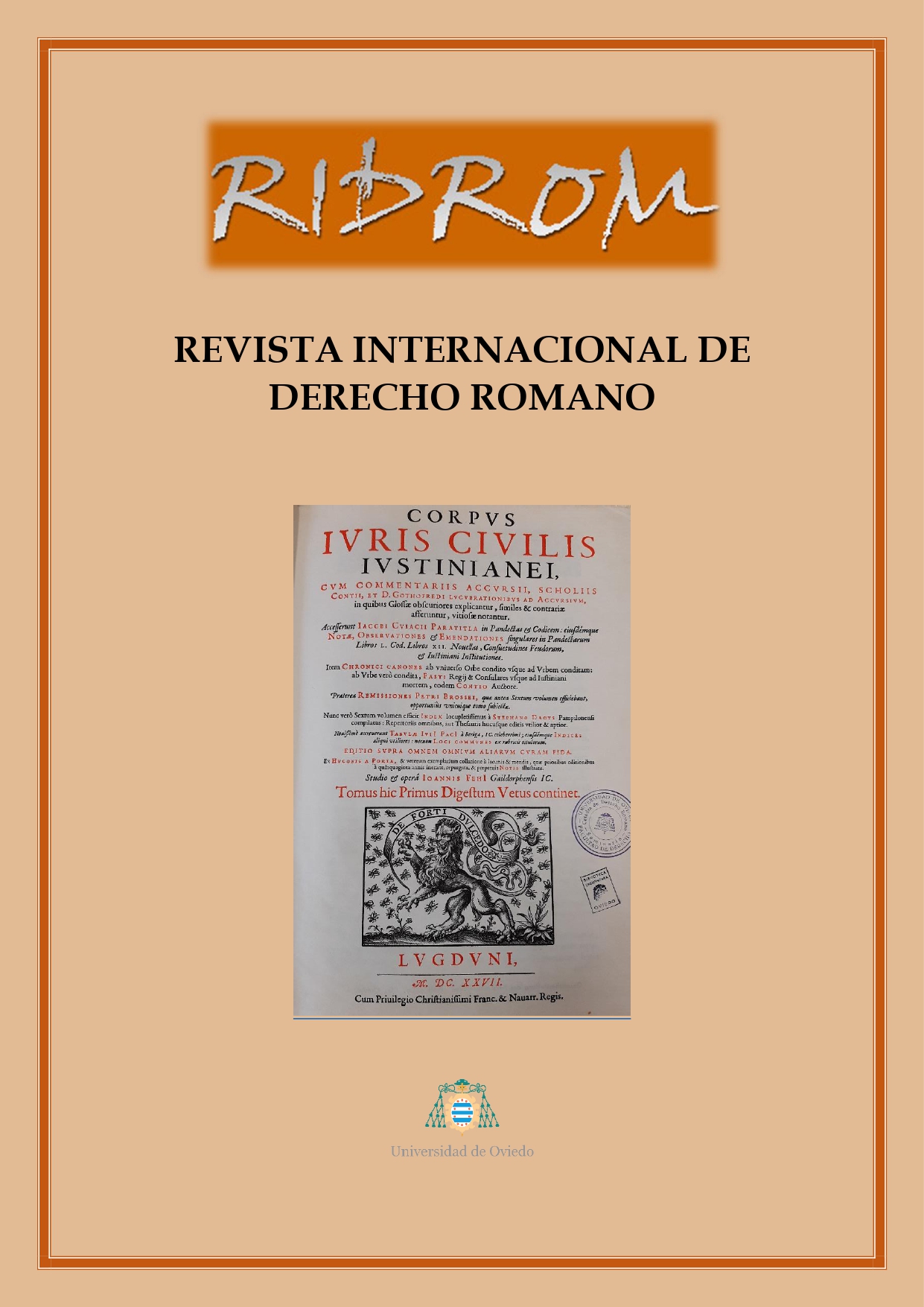Abstract
The promulgation of the Quarta Falcidia in the classical period did not give rise to the appearance of forced heirs in Rome; what was imposed was a mandatory reservation of one-fourth of the inheritance to ensure the acceptance of the heir designated in the will. This interpretation was upheld in the post-classical Justinian era, where other cases of a one-fourth reservation also emerged, such as the fiscal fourth in the case of marriages between relatives or the curial fourth, according to which one-fourth of the inheritance of the decurions had to necessarily go to the Curia. The institution of the heir was completely free; however, in some cases, when children or grandchildren were collectively designated as heirs, they had a right to a portion of that one-fourth based on their number. This was the "portio debita iure naturae." Justinian increased the overall portion allocated to children when they were collectively named heirs, depending on whether there were more or fewer than four of them.
References
BONIFACIO, F.; Ricerche sulla “Lex Falcidia de legatis”, Jovene, Napoli, 1948.
FERNÁNDEZ BARREIRO, A., PARICIO SERRANO, J., Libertad de testar y sistema de legítimas, AFDUDC, nº 10, Universidad de A Coruña, A Coruña, 2006, págs. 279-302.
FRANCIOSI, G.; “Lex Falcidia”, “SC Pegasianum” e disposizioni a scopo di culto, Studi in memoria di G. Donatuti I, Milano, 1973, págs. 401-414.
FUENTESECA, M., - La mancipatio familiae o el negotium testamenti ordinandi gratia, SCDR XXIX, 2016, págs. 127-129.
LÓPEZ RENDO, C., - Fundamento de la Regla "Sui heredes aut instituendi sunt aut exheredandi en el Ius Civile", Universidad de Oviedo, Servicio de Publicaciones, Asturias, 1991.
MANNINO, V., - Cervidio Scevola e l'applicazione della "Falcidia" ai legati fra loro connessi, BIDR, nº 23, Giuffrè, Milano, 1981, págs. 125 y ss.
MASCHI, C.A., - La solennità della heredis institutio nel diritto romano, Giuffrè, Milano, 1967.
ORTUÑO PÉREZ, M.A., - Contribuciones al Derecho Romano de Sucesiones y Donaciones, Dykinson, Madrid, 2015.
SAMPER, “Pars debita” en el der. rom. vulgar, SDHI, Vaticano nº 37, 1971, pág. 74.
SANFILIPPO, C., - Studi sull´ hereditas, AUPA, Palermo, 1937, pág. 142 y ss.
SANGUINETTI, A.; Dalla “querela” alla “portio legitima”, Giuffrè, Modena, 1996.
VISMARA, G., - Appunti intorno alla heredis institutio, Giuffrè, Milano, 1938.

This work is licensed under a Creative Commons Attribution-NonCommercial-NoDerivatives 4.0 International License.
Copyright (c) 2023 Ana Vázquez Lemos


